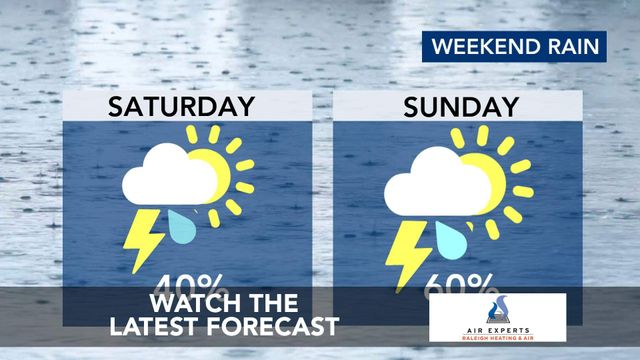UNC Health to expand use of antibody treatment to prevent COVID-19 hospitalization
UNC Health is ramping up the use of a new antibody treatment to help prevent people who are sick with coronavirus from going to the hospital.
Since the pandemic started last year, UNC Health has given out more than 3,000 monoclonal antibody infusions, and 500 of those were administered in the last two weeks.
The treatment is a one-time, 30-minute IV infusion.
“These are antibodies that are kickstarting your immune system’s response to fight the virus," said UNC Health's Dr. David Wohl, an infectious disease expert.
Monoclonal antibody treatment has emergency use authorization from the Food and Drug Administration. The treatment should be given to patients within 10 days of a positive test, though sooner is better.
“The sooner we get this into your system, the better, and the more likely it will work to keep you out of the hospital," he said. "We’ve really seen no side effects.”
UNC Health is now offering the therapy at these nine infusion centers:
- The Pittsboro Therapeutic Infusion Center
- Children’s Specialty Clinic, Raleigh - Blue Ridge
- UNC Rex Healthcare, Raleigh, NC
- Caldwell Infusion Center, Lenoir, NC
- UNC Urgent Care at Clayton, Johnston County
- Lenoir Hospital, Kinston, NC
- Nash COVID Infusion Unit, Rocky Mount, NC
- Rockingham COVID Inpatient Unit, Eden, NC
- Wayne Infusion Center, Goldsboro, NC
Officials with UNC Health say they will soon start handing out information about monoclonal antibodies at all of their testing sites.
As soon as someone tests positive, Wohl said they should call UNC Health to make an appointment for the monoclonal antibody treatment.
“They should be calling up and making sure they qualify, which most people do," he said.
The antibody treatment is just one line of defense and is not a replacement for a vaccine and face mask.
“The vaccine is designed to allow the virus to come into your system but then beat up on the virus the minute it gets there," Wohl said.
Health officials say expect to hear more about the treatment in the coming weeks and months.









